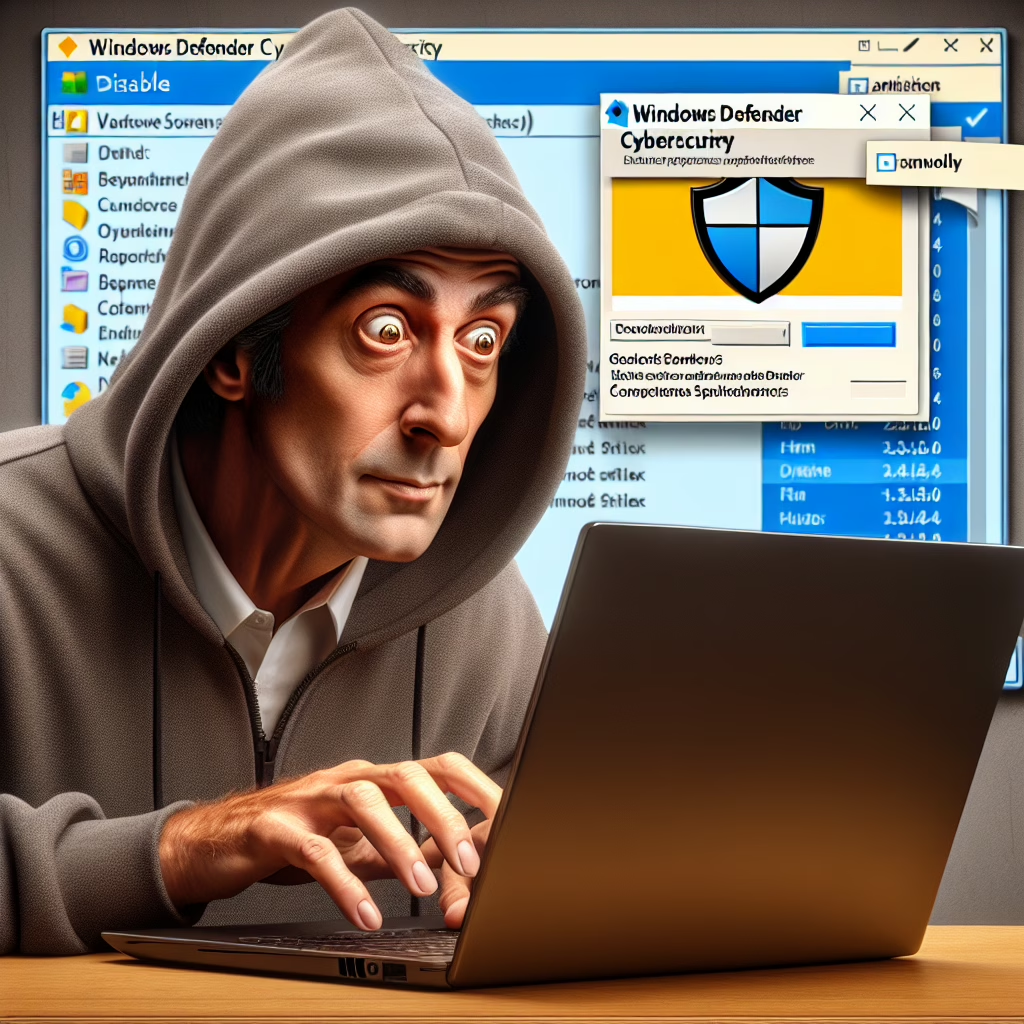In a world where cybersecurity threats lurk behind every corner, it’s no surprise that hackers have found a way to turn off Windows Defender. Yes, you heard it right! This sneaky new tool is like the magician’s rabbit—only instead of a cute bunny, it’s your computer’s security taking a nosedive. So, what does this mean for the everyday user? Buckle up as we dive into this digital escapade!
How Hackers Are Pulling Off This Trick
Imagine sitting down to work on your laptop, feeling all secure with Windows Defender keeping watch like a loyal dog. But wait! A crafty hacker can now turn that protective pup into a sleepy cat with just a few clicks. The tool in question exploits weaknesses in the system’s permissions and processes.
To put it simply, this tool acts like a digital ninja, sneaking past defenses while you’re sipping your coffee. It can deactivate Windows Defender without breaking a sweat—no flashy fireworks or dramatic music necessary. Just good ol’ fashioned cyber sleight of hand!
The Implications for Your Security
You might be wondering, “Is my computer safe?” Well, let’s put it this way: if your security software can be turned off by a clever hacker, you might want to rethink your cybersecurity strategy. Think of Windows Defender as a fence around your house; if someone finds a way to open the gate, you might want to consider installing some extra locks!
Hackers are getting craftier by the day, but fear not! There are plenty of proactive steps you can take to keep those pesky intruders at bay.
Proactive Measures to Boost Your Security
- Regularly Update Your Operating System: Ensure that your Windows operating system is updated regularly. Microsoft rolls out updates like clockwork, and these updates often patch vulnerabilities that hackers love to exploit.
- Enable Multi-Factor Authentication (MFA): Adding an extra layer of security is akin to wearing two pairs of pants—sure, it might feel a little cumbersome, but it also keeps you from accidentally flashing anyone! MFA helps ensure that even if hackers gain access to your password, they’ll still need another key to unlock your account.
- Use Third-Party Antivirus Software: While Windows Defender is great for basic protection, it sometimes lacks the punch needed against advanced threats. Think of it as having a bodyguard who occasionally forgets their glasses—good in theory but maybe not the best at spotting danger!
The Importance of Regular Backups
No one wants to think about losing their files due to a hacker attack or malware infection. That’s why regular backups are crucial! Whether you opt for cloud storage or an external hard drive, having copies of your important documents will save you from facing an emotional meltdown if disaster strikes.
Make backup day a fun event! Perhaps throw on some tunes and treat yourself to pizza while you wait for those files to transfer. It’ll be like a mini-party for your data—just without the confetti (unless you’re into that kind of thing).
Staying Informed About Cyber Threats
The more you know about potential threats and how they operate, the better equipped you’ll be to defend against them. Follow cybersecurity blogs and forums like they’re the latest gossip column—because let’s face it, they basically are! Knowledge is power, especially in the ever-evolving landscape of cybercrime.
Being aware of tools that hackers use can help you stay one step ahead. After all, it’s easier to dodge a speeding bullet when you know it’s coming!
Wrapping It Up
As we navigate through 2025 and beyond, keeping our devices secure should remain a top priority. While hackers may have their tricks up their sleeves (or under their hoodies), being proactive can significantly reduce your risk.
If you’ve taken any steps toward enhancing your security or have tips of your own, share them below! We’d love to hear how you’re keeping those pesky hackers at bay.
A huge shoutout to TechRadar for bringing this important issue to light. Thank you for keeping us informed!

